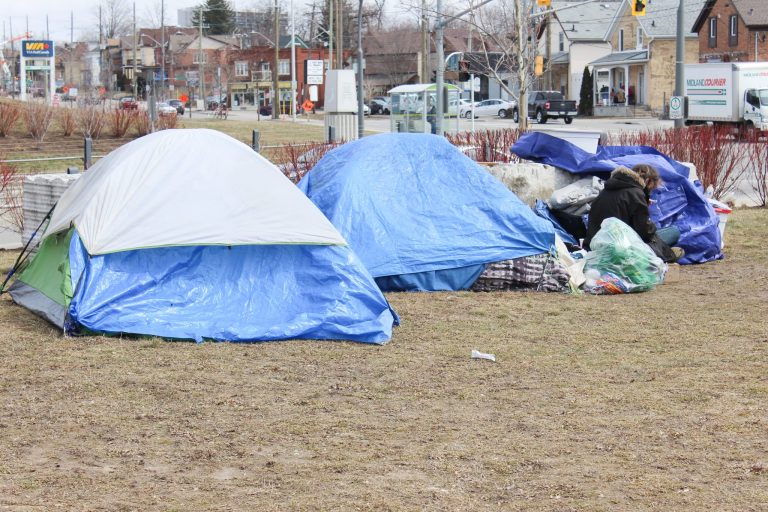When Evangelynn Chee came to the Waterloo Region, she noticed two things different in regards to those experiencing homelessness and poverty compared to other cities where she had worked. These was a sense of community and awareness.
“Organizations themselves are reaching out to each other, they’re establishing connections with each other and within the community that’s experiencing poverty and homelessness,” she said.
“I think [Waterloo Region] doesn’t gain as much attention as Toronto or Hamilton. That is why if I can shed some light into the Kitchener-Waterloo Region, maybe we can get more resources,” Chee said.
Prior to starting her Master of Social Work and internship at Waterloo Region Community Legal Services, Chee already had the idea of the Exposure Project in her head. During her internship, she was able to bring it to life.
Chee started the Exposure Project, an online community platform for individuals who are experiencing poverty and homelessness to share their stories. Historically, these stories are not included in the media, and those that are included are not always true to the individual.
“I find that a lot of mainstream media tends to change the narrative according to what they feel will get more attention, but it is not necessarily what the individual wants to portray or doesn’t necessarily reflect who they are or the message they want to put out there,” Chee said.
Chee’s main focus for the Exposure Project is to raise awareness for the lived realities that people experience because of homelessness. She hopes to break down the stigma associated with people who have experienced homelessness and poverty through stories.
“You hear that a lot that people are just lazy, they just want handouts. We hear all of these things, but then when we realize what a person has gone through, the things that they have experienced and why they’re in a circumstance that they are, there is less blaming the individual, but holding the systems and policies accountable,” she said.
Not only do these stories shine a light on the stigma people experiencing homelessness face, they also showcase the systemic barriers in our community. Barriers like racism, discrimination, policing, criminalization of homelessness, lack of affordable housing and health care inequities which aggravate the housing crisis.
Chee said that the voice of the affected population is missing from the conversations on homelessness.
“Sometimes we don’t realize certain barriers that those folks might be experiencing. I think we try our best, and we have good intentions most of the time. But we might not be hitting the mark,” she said.
“What is missing is stakeholder participation, for involv[ing] the folks that are receiving the services and saying, ‘How can we serve you better? What are some ways that we can provide better accessibility?’” Chee said.
Chee hopes that The Exposure Project can be a place to provide education and understanding to others’ lived experiences.
Being able to create a new sense of understanding for those has already carried over in a more personal way to her work at the Waterloo Region Community Legal Services.
“I’ve heard feedback from lawyers, saying, ‘I did not know that this was that person’s story, and it kind of changed my perspective now that I’m working on their case,’” Chee said.
Although the goal of The Exposure Project has been about raising awareness, it is also tied closely to the experience of the participants.
Chee hopes that the community will approach The Exposure Project with open minds and open hearts.
For more information on The Exposure Project, visit @TheExposureProjectKW on Instagram or wrcls.ca/theexposureproject.

